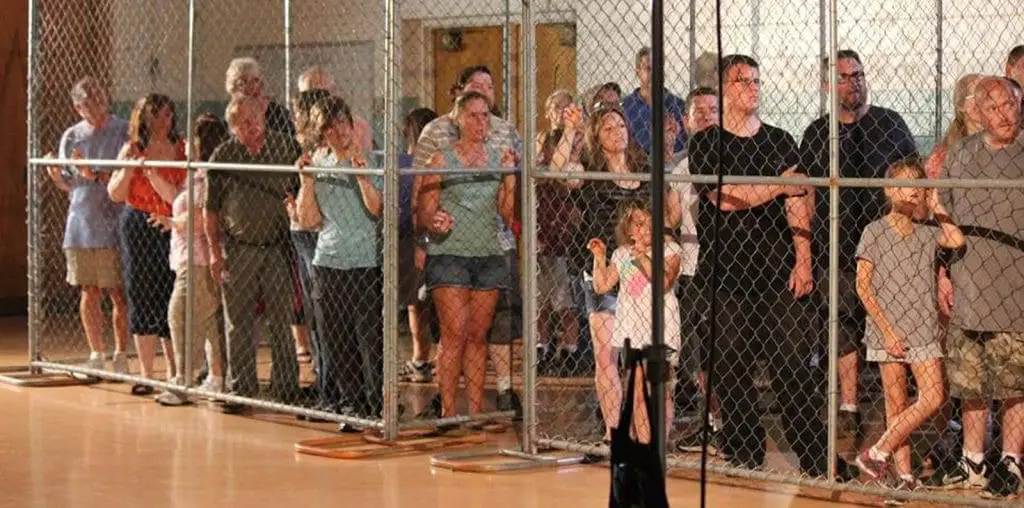
Back in 2001 when Steven Soderbergh decided to get some of his Hollywood friends together for a remake of the Rat Pack caper comedy Oceans Eleven, he really was inviting them to a party. The director had just come off a popular and critical streak which produced such excellent films as Out of Sight, Traffic and Erin Brokovich. Understandably, he believed he’d earned the right to lay back, goof around, indulge his playful side and reward himself and his pals with an easy, breezy payday. So OK, you could let the first one slide.
But, I’m sorry. Here we are three years later and Soderbergh’s still coasting along on the good will of his audience and the charm of his A-list chums. As the rambling, dumb and dismal Oceans Twelve makes abundantly clear, it’s time to get back to work. The party’s over.
The sequel establishes a dopey, jokey, half-assed tone early on. The characters played by George Clooney and Julia Roberts in the first film have remarried and are about to celebrate an anniversary. They’re on the phone discussing plans for their special evening when Roberts notices a car pulling up her driveway and old boyfriend and casino owner Andy Garcia emerging from it flanked by musclebound twin bodyguards. Clooney and Roberts have a code ready for just such an occasion so the leader of the gang that stole millions from Garcia’s Las Vegas establishment is able to slip out of town unscathed. Does he leave his wife at the mercy of the casino boss and his goons? You bet. Does he ring up the rest of his crew to warn them that Garcia’s on their trail? No way.
Well, that’s a festival of credibility, isn’t it? And things just get more chuckleheaded from there. After being personally visited by Garcia, each of Clooney’s cohorts manages to rendezvous with him so that a plan can be hatched. The challenge is to repay the casino owner every cent of the missing $160 mill plus interest within a matter of days. That comes to just under $200 million. Of course, Garcia’s already had his losses covered by his insurance company but he wants to make a point. Clooney, Brad Pitt, Matt Damon, Elliot Gould, Don Cheadle and company bat around a few ideas and decide their best bet is jetting to Amsterdam and pulling a job for an underworld contact played by Robbie Coltrane.
As jumbled and dull as the first half of the film is, the second makes it look like timeless cinema. Long gabby stretches appear to have been ad libbed. As he made the movie, Soderbergh seems to have proceeded under the assumption that his audience would find lingering close ups of matinee idol cast members a satisfactory substitute for decent dialogue and plotting. Hey, George Clooney and Brad Pitt are great looking guys but somebody’s crossed a line when getting to watch them grin for two hours is expected to justify the price of admission.
Sadly, Soderbergh doesn’t even pretend that much else here is supposed to. Certainly not the yeah-right scheme to break into a rich guy’s house by using hydraulic lifts to raise it to a height that accommodates their access. Or the Clousseau-level rivalry that develops between Clooney and an infamous Euroburglar called The Night Fox (Vincent Cassel). Much less the so-convoluted-I-defy-even-the-director-to-explain-it climax which involves the theft of a heavily guarded jeweled egg.
It’s a sad day for film fans when a director as talented as Soderbergh stoops to the random celebrity cameo to keep a picture from putting itself to sleep. But that’s what happens in the final moments of Oceans Twelve. Just when you think the movie couldn’t possibly descend into a more empty headed exercise in famous face exhibition, Bruce Willis pops up in a luxury hotel to guest star as-guess who?-Bruce Willis! Meanwhile, Roberts and Catherine Zeta-Jones are left to contribute little besides eye candy.
Despite a couple of half-hearted, half-baked twists tossed in at the last minute, the story never feels fully fleshed and the most exciting part of the final act is the fact that the time to leave has rolled around at long last. I doubt that this much screen talent has ever been put toward the service of so lazily conceived and instantly forgettable an affair. If there’s a moral to this story, it’s not that crime doesn’t pay. It’s that making people pay to watch a heist film this sorry is nothing short of a crime.
